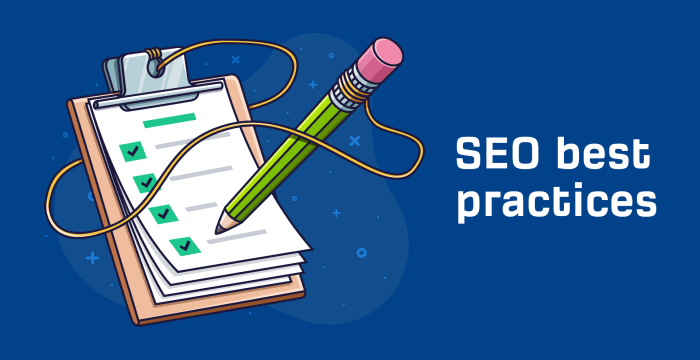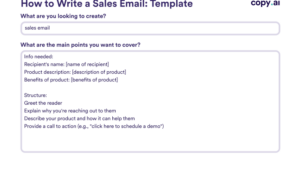SEO Best Practices – Best Practices sets the stage for this enthralling narrative, offering readers a glimpse into a story that is rich in detail with american high school hip style and brimming with originality from the outset.
encompasses a variety of strategies that can elevate your website’s visibility and attract more traffic. From on-page optimization to off-page tactics, mastering best practices is key to dominating the digital landscape.
Importance of Best Practices

In the digital jungle of the internet, best practices are like the secret map to help your website stand out from the competition. By implementing these practices, you can increase your online visibility and attract more organic traffic to your site.
Following best practices can have a profound impact on website traffic. For example, optimizing your website for relevant s can help it rank higher in search engine results pages, making it easier for users to find you. This can lead to an increase in organic traffic and ultimately, more potential customers discovering your business.
best practices are crucial because they align with search engine algorithms, which determine how websites are ranked in search results. By following these best practices, you can ensure that your website is optimized for search engines, making it easier for them to crawl and index your site. This can result in higher rankings, more visibility, and ultimately, more traffic to your website.
On-Page Best Practices: SEO Best Practices

In the world of , on-page optimization plays a crucial role in improving the visibility and ranking of a website. By implementing key on-page strategies, you can enhance your website’s performance and attract more organic traffic.
Internal Linking for Improved :
Internal linking refers to linking one page of a website to another page within the same site. This not only helps users navigate through your content but also assists search engines in understanding the structure and hierarchy of your website. By strategically placing internal links, you can distribute link equity and drive traffic to important pages on your site, ultimately boosting your on-page .
Optimizing Meta Tags and Headings:
Meta tags, such as title tags and meta descriptions, provide search engines with information about your website’s content. By optimizing these tags with relevant s and compelling descriptions, you can increase the chances of your pages appearing in search results. Similarly, headings (H1, H2, etc.) help organize your content and signal the importance of different sections to search engines. By utilizing headings effectively and incorporating target s, you can improve the overall on-page of your website.
Significance of High-Quality Content:
Content is king when it comes to on-page . Search engines prioritize websites that offer valuable, relevant, and engaging content to users. By creating high-quality content that addresses the needs and interests of your target audience, you can establish authority in your niche and attract more organic traffic. Additionally, fresh and regularly updated content signals to search engines that your website is active and relevant, further enhancing your on-page efforts.
Off-Page Best Practices
When it comes to off-page , there are several key strategies that can help improve your website’s visibility and ranking on search engines. One of the most important aspects of off-page is building a strong backlink profile, which involves getting other reputable websites to link back to your site. This not only drives traffic to your website but also signals to search engines that your site is trustworthy and authoritative.
The Role of Backlinks in Off-Page Strategies, SEO Best Practices
- Backlinks act as “votes of confidence” for your website, signaling its relevance and authority to search engines.
- The quality and quantity of backlinks are crucial, as links from reputable and relevant sites carry more weight.
- Natural, organic backlinks are preferred over paid or spammy links, as they are more likely to positively impact your efforts.
The Importance of Social Media Presence for Off-Page
Having a strong presence on social media platforms is another key aspect of off-page . Social signals, such as likes, shares, and comments, can indirectly impact your website’s ranking on search engines. Engaging with your audience on social media can help drive traffic to your site and increase brand visibility.
Examples of How Guest Blogging Can Enhance Off-Page Efforts
- Guest blogging on reputable sites in your industry can help you reach a wider audience and build backlinks to your site.
- By providing valuable, relevant content on other sites, you can showcase your expertise and establish yourself as a thought leader in your field.
- Guest blogging also allows you to network with other professionals and potentially gain new followers or customers.
Technical Best Practices
When it comes to technical , certain practices play a crucial role in improving a website’s search engine visibility and overall performance. Let’s dive into some key aspects that can help enhance your site’s technical .
Significance of Site Speed and Mobile Responsiveness
Site speed and mobile responsiveness are not just important for user experience but also for technical . Search engines like Google consider page speed as a ranking factor, and a slow-loading website can negatively impact your efforts. Mobile responsiveness is equally essential since mobile devices are now the primary source of internet traffic. Ensuring that your site loads quickly and is optimized for mobile devices can significantly improve your site’s performance.
Importance of XML Sitemaps and Robots.txt Files
XML sitemaps help search engines understand the structure of your website and index its pages more efficiently. By providing a roadmap of your site’s content, you can ensure that search engines discover and crawl all your important pages. Robots.txt files, on the other hand, allow you to control which pages search engines can or cannot crawl on your site. This helps in preventing search engines from wasting time crawling irrelevant pages and focusing on your key content.
Role of Structured Data Markup
Structured data markup, also known as schema markup, helps search engines better understand the content on your website. By adding schema markup to your site, you can provide additional context to search engines about your content, products, services, and more. This can lead to rich snippets in search results, improving click-through rates and overall visibility. Implementing structured data markup can enhance your site’s appearance in search engine results pages and boost your efforts.





